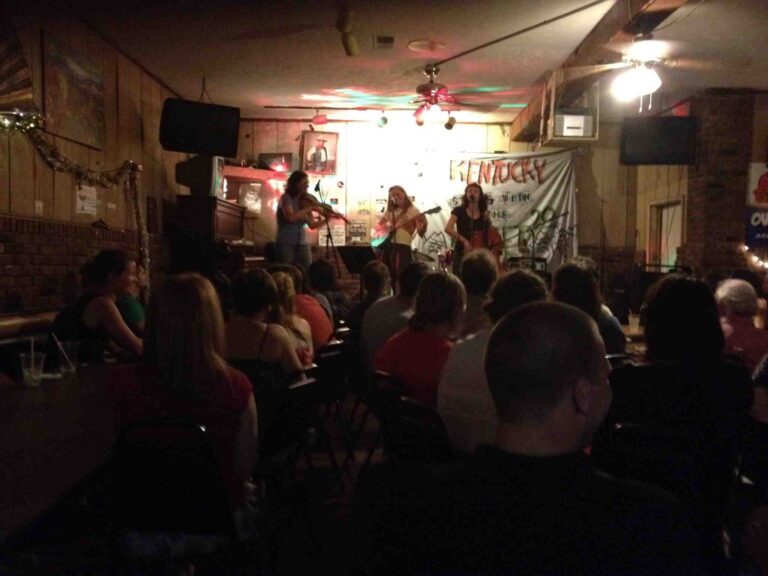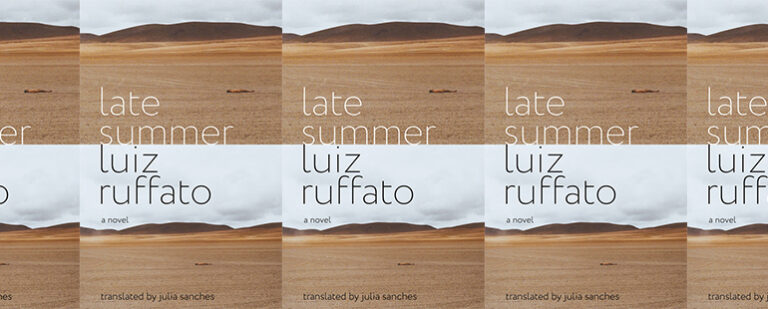Finding the Essential in the Literary Midwest
About a year ago I was invited to participate on a panel of writers to talk about how being a Midwesterner fits into my life as a writer. It was a tough question. I was raised in Illinois, but had just finished a five-year stint in Texas and was at that moment, upon my return, in the throes of appreciation for the heartland. While my colleagues down south were still battling heat and humidity and mosquitoes, we up north were enjoying the first weeks of Autumn, the air crisp but not yet frigid. I arrived in Terre Haute, Indiana the night before the conference and walked through the sleepy city, encountering small packs of twenty-somethings heading out to this café or that bar, many of them taking a moment to smile kindly and say “hi” to me as I aimlessly strolled by. I was home.
I have lived most of my life in Illinois and Iowa and Ohio, though for a short stretch of my childhood I lived in Marin County, California, just across the Golden Gate Bridge from San Francisco. I was young, but I think even then I knew that I did not quite fit. It wasn’t that I didn’t like the place; on the contrary, I still go back and visit every few years and get all caught up in nostalgia. By the time we moved there when I was seven, though, it was too late: I’d already become a Midwesterner.
There was something about the west coast that just seemed a bit much. The extroverted beauty combined with the insistent good vibes set me in a slightly defensive position. The undeniable desirability of the place seemed, if not strictly antithetical to the Midwestern mindset, then at least a little at odds with the humility of my homeland. The ocean and the bay, all those rolling hills, the pillows of fog over that gleaming white city—it all just felt kind of gratuitous. It isn’t that the Midwestern soul is not attracted to beauty, but it has a hard time seeing such abundance and declaring itself deserving of it all. “Who needs such a view every day?” my people say. “No, no, I’m fine with the corn.”
 The beauty of the Midwest is subtle and many people don’t see it. Lovers of the Rocky Mountains or the beaches of southern California might look at the woods of Wisconsin and see little more than a collection of leafy trees. Some may scan the frozen winter fields of Indiana and Minnesota and feel nothing but a deep existential chill. “Wait,” we Midwesterners say in response, “look how fertile we are.” For proof, we hold up a kernel of corn or a single soybean.
The beauty of the Midwest is subtle and many people don’t see it. Lovers of the Rocky Mountains or the beaches of southern California might look at the woods of Wisconsin and see little more than a collection of leafy trees. Some may scan the frozen winter fields of Indiana and Minnesota and feel nothing but a deep existential chill. “Wait,” we Midwesterners say in response, “look how fertile we are.” For proof, we hold up a kernel of corn or a single soybean.
But here’s the good news: the ability to see the beauty in the vast horizons of the Midwestern landscape has a close cousin in the ability to appreciate and create great writing. That corn and soy that grows up from the ground are akin to the characters that grow from an organically written story. The richness of the soil is not unlike that famous iceberg lurking below the surface of which Hemingway—great son of the Midwest—spoke. The best writing always has more beneath the surface than in the text itself.
I believe one of the hallmarks of the Midwestern character is that it strives toward the essential and eschews the extraneous. And aren’t these habits of great literary writing?
*
 “Fly-over state” is a common term these days, being used liberally by those both coastal and coastally-aspirational. The meaning and the attitude behind the term are not difficult to parse out. To many these middle states are little more than great expanses of farmland—i.e. nothing—that must be passed over or through on one’s way to Chicago or to visit college or grad school friends in Madison or Iowa City, those islands of culture.
“Fly-over state” is a common term these days, being used liberally by those both coastal and coastally-aspirational. The meaning and the attitude behind the term are not difficult to parse out. To many these middle states are little more than great expanses of farmland—i.e. nothing—that must be passed over or through on one’s way to Chicago or to visit college or grad school friends in Madison or Iowa City, those islands of culture.
Sometimes I fear that Midwestern authors are seen from a similar vantage point: that many of us are “fly-over writers” to whom readers wave (or just ignore completely) as they make their way to Saul Bellow and Stuart Dybek and Marilynne Robinson. I fear that these bigger names, along with a few others (Charles Baxter, Lorrie Moore), are seen as exceptions to the general rule that little of cultural worth grows in this flat, middle stretch of the country.
This, despite the fact that many of our most illustrious writing programs are housed at Midwestern universities and that some of our most respected literary authors have called the region home.
Of course the Midwest is more diverse than it gets credit for, and likewise Midwestern literature encompasses a wide array of authors and styles. Look at the moral novels of Theodore Dreiser. Or the intimate psychology of Sherwood Anderson. Look at the gritty worlds of contemporary authors Donald Ray Pollock, Bonnie Jo Campbell, and Daniel Woodrell. Hell, look at the sentimental nostalgia of Robert James Waller. There is no one writer we can point to and say, “This is Midwestern writing.”
And perhaps this is a blessing. While the lack of major figures means many readers tend to ignore the region’s literature, perhaps this is the very thing that opens the door for the rest of us. I imagine it must be frustrating to be a southern writer, to always have the voices of Flannery O’Connor and William Faulkner echoing through literary conversations. Or to be a poet in San Francisco, with the ghosts of so many Beats still knocking about. But here in the Midwest, we have less of an overt tradition to which we must answer. We can do whatever we want.
Getting back to that panel I was on in Terre Haute last year: I never did answer the central question. It’s difficult to say exactly how being a Midwesterner fits into my being a writer, but I believe that the character of the region has taught me patience, which is essential for both writers and readers. It has also taught me to reserve judgment and to appreciate subtlety.
So to you folks flying over, I say this: go ahead. Go on to Colorado or New Mexico or California. Go on to Brooklyn and Portland and Austin. Go on to your more glamorous regions, to your fashionable residents and well-spiced food and detectable topography. We’ll be here in the heartland, gnawing on an ear of corn and quietly, patiently making literature.


